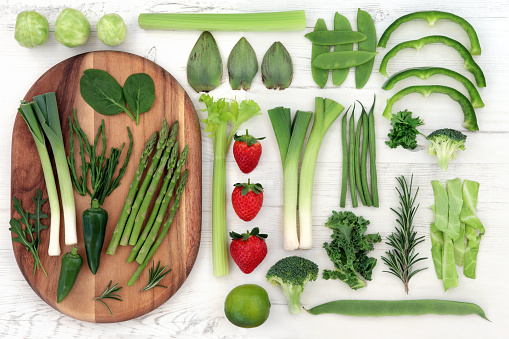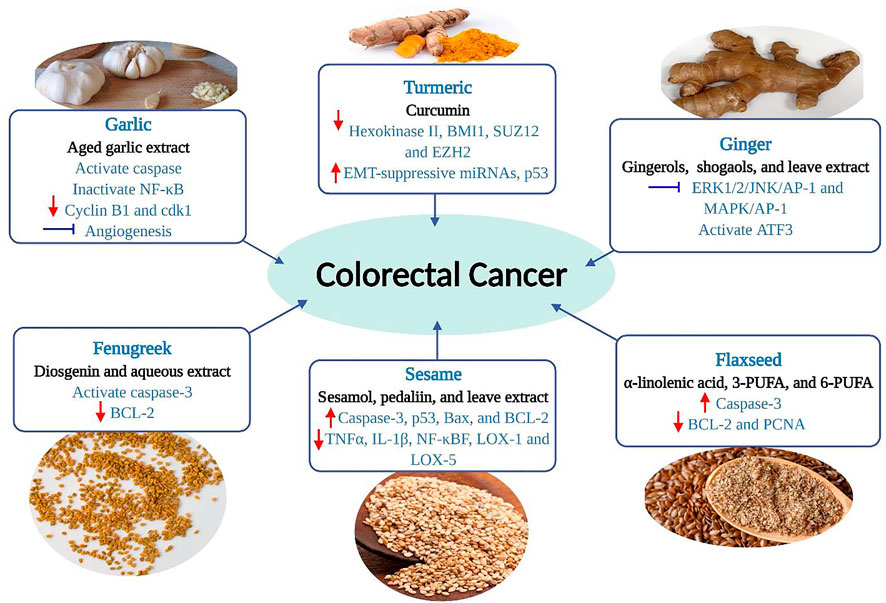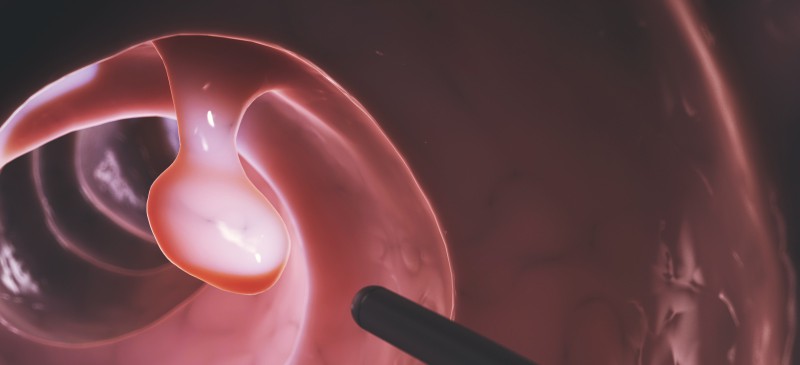Are you looking for a natural solution to effectively treat and prevent colon polyps? Look no further! This article presents a remarkable natural remedy that can help you in your journey towards a healthier colon. Read on to discover the secret to combating polyps in a safe and gentle manner, without the use of harsh medications or invasive procedures. Say goodbye to worries and embrace a natural approach to maintaining colon health!

Overview of Polyps-Colon
What are polyps?
Polyps are abnormal growths that can occur in various parts of the body, including the colon. They usually appear as small, mushroom-shaped protrusions that develop on the inner lining of the colon or rectum. While most polyps are benign, meaning they are not cancerous, some can eventually turn into cancer if left untreated.
What are colon polyps?
Colon polyps specifically refer to the polyps that develop in the large intestine, also known as the colon. These growths can vary in size and shape, ranging from small, flat polyps to larger, raised ones. While the exact cause of colon polyps is not yet fully understood, certain risk factors can increase the likelihood of their development.
Types of colon polyps
There are several types of colon polyps, but the most common ones include:
- Adenomatous polyps: These are the most common type of polyps found in the colon. While most adenomatous polyps are benign, some have the potential to develop into colorectal cancer over time.
- Hyperplastic polyps: These polyps are typically small and rarely develop into cancer. They are usually harmless and do not require immediate medical intervention.
- Serrated polyps: Serrated polyps are a less common type of polyp and are often more challenging to detect during a colonoscopy. Some serrated polyps have a higher risk of becoming cancerous.
- Inflammatory polyps: These polyps typically develop as a response to inflammation in the colon or rectum. They are generally harmless and can be managed by treating the underlying cause of inflammation.
Causes and Risk Factors
Causes of colon polyps
While the exact causes of colon polyps are not fully understood, researchers believe that a combination of genetic and environmental factors may play a role in their development. It is believed that mutations in certain genes can increase the risk of developing polyps. Additionally, a diet high in red and processed meats, low in fiber, and lacking in certain vitamins and minerals may contribute to their formation.
Risk factors for developing colon polyps
Several factors can increase the risk of developing colon polyps, including:
- Age: The risk of developing polyps increases with age, particularly after the age of 50.
- Family history: Individuals with a family history of colon polyps or colorectal cancer are at a higher risk.
- Inflammatory bowel disease: People with conditions such as ulcerative colitis or Crohn’s disease have an increased risk of colon polyps.
- Smoking: Smoking tobacco has been associated with an increased risk of developing colon polyps.
- Obesity: Being overweight or obese has been linked to a higher risk of colon polyps.
- Sedentary lifestyle: Lack of physical activity and leading a sedentary lifestyle may increase the risk of polyp formation.

Symptoms of Polyps-Colon
Common symptoms of colon polyps
Most polyps do not cause noticeable symptoms, especially in the early stages. However, larger polyps or those that have been present for a long time may cause the following symptoms:
- Rectal bleeding: This can manifest as blood in the stool, on toilet paper, or in the toilet bowl after a bowel movement.
- Change in bowel habits: Polyps can sometimes cause a change in the frequency or consistency of bowel movements.
- Abdominal pain or cramping: Some people with colon polyps may experience abdominal discomfort or cramping that is not relieved by passing gas or having a bowel movement.
When to see a doctor
If you experience any of the symptoms mentioned above or have a family history of colon polyps or colorectal cancer, it is essential to consult a doctor. Early detection and intervention can help prevent complications and ensure timely treatment, if necessary.
Diagnosis and Medical Treatment
Diagnosing colon polyps
The most effective way to detect colon polyps is through a colonoscopy. During this procedure, a thin, flexible tube with a camera on the end is inserted into the rectum and guided through the colon. The doctor can visually inspect the colon and rectum, identify any polyps present, and take small tissue samples for further examination (biopsy).
Medical treatments for colon polyps
The treatment for colon polyps depends on various factors, including the size, number, and characteristics of the polyps. In most cases, if the polyps are small and noncancerous, they may be removed during the colonoscopy procedure. This procedure is known as a polypectomy.
For larger polyps or those that have a higher risk of becoming cancerous, surgical removal may be necessary. In some cases, medication may be prescribed to reduce the risk of polyp recurrence.
Potential complications
While most colon polyps are harmless, some can develop into colorectal cancer over time. Regular screenings and early detection are essential for preventing complications. If a polyp is found to be cancerous, additional treatment options, such as surgery, chemotherapy, or radiation therapy, may be necessary.

Natural Remedies for Polyps-Colon
Dietary changes
Making dietary changes can help support overall colon health and reduce the risk of polyp formation. Including the following foods in your diet can be beneficial:
- Fiber-rich foods: Consuming ample amounts of fruits, vegetables, whole grains, and legumes can increase fiber intake and promote healthy bowel movements.
- Cruciferous vegetables: Vegetables such as broccoli, cauliflower, cabbage, and Brussels sprouts contain compounds that may help reduce the risk of polyps.
- Healthy fats: Including sources of healthy fats, such as avocado, nuts, seeds, and olive oil, can provide anti-inflammatory benefits.
- Antioxidant-rich foods: Foods rich in antioxidants, such as berries, dark chocolate, and green leafy vegetables, can help reduce oxidative stress and inflammation.
- Probiotics and fermented foods: Consuming probiotic-rich foods like yogurt, kefir, sauerkraut, and kimchi can promote a healthy gut microbiome.
Herbal supplements
Certain herbal supplements may offer potential benefits for colon health. However, it is important to consult with a healthcare professional before starting any herbal regimen. Some herbal supplements that may be beneficial include:
- Turmeric: Curcumin, the active compound in turmeric, has anti-inflammatory properties that may help reduce inflammation in the colon.
- Green tea: Rich in antioxidants, green tea has been associated with a reduced risk of polyp development.
- Garlic: Garlic contains compounds that have been shown to have anti-cancer properties and may be beneficial for colon health.
- Ginger: Ginger possesses anti-inflammatory properties and may help reduce inflammation in the colon.
- Milk thistle: This herb has been traditionally used to support liver health, which plays a crucial role in detoxification processes within the body.
- Spirulina: This blue-green algae is rich in antioxidants and may have anti-inflammatory effects, potentially benefiting colon health.
Importance of Exercise
Aerobic exercises
Engaging in regular aerobic exercises such as brisk walking, jogging, cycling, or swimming can help maintain a healthy weight and promote overall colon health. Aim for at least 150 minutes of moderate-intensity aerobic exercise per week.
Strength training
Incorporating strength training exercises into your routine, such as weightlifting or resistance band workouts, can help build muscle strength and improve overall physical fitness. Strong muscles can support proper bowel function and reduce the risk of colon polyps.
Stretching exercises
Performing stretching exercises regularly can help improve flexibility and reduce muscle tension. Gentle stretches targeting the abdominal area can promote healthy digestion and bowel movements.
Yoga and meditation
Practicing yoga and meditation can provide numerous benefits for colon health. Yoga postures that involve twists and stretches can help stimulate the digestive system, while meditation and deep breathing exercises can reduce stress levels and promote relaxation.

Stress Management Techniques
Deep breathing exercises
Deep breathing exercises, such as diaphragmatic breathing or belly breathing, can help activate the body’s relaxation response and reduce stress levels. Incorporate deep breathing into your daily routine to manage stress effectively.
Mindfulness meditation
Practicing mindfulness meditation involves focusing your attention on the present moment and accepting it without judgment. Regular mindfulness meditation can help reduce stress, promote emotional well-being, and support colon health.
Yoga and tai chi
Both yoga and tai chi combine physical movement with mindfulness and breath control. These practices can help reduce stress, improve flexibility, and support overall colon health.
Massage therapy
Massage therapy can help relax the body and mind, reduce muscle tension, and improve circulation. Regular massages can be beneficial for managing stress levels and promoting general well-being.
Stress-reducing activities
Engaging in activities that you enjoy and find relaxing, such as reading, listening to music, engaging in hobbies, or spending time in nature, can help reduce stress levels. Find activities that work best for you and make time for them regularly.
Prevention and Conclusion
Tips for preventing colon polyps
While it is not always possible to prevent colon polyps entirely, certain lifestyle changes may help reduce the risk:
- Maintain a healthy weight: Aim for a healthy body weight through proper diet and regular exercise.
- Follow a balanced diet: Include plenty of fruits, vegetables, whole grains, and lean proteins in your diet while limiting processed foods, red meat, and sugary beverages.
- Quit smoking: If you smoke, seek support to quit smoking as it is a known risk factor for colon polyps.
- Limit alcohol consumption: Excessive alcohol consumption has been linked to an increased risk of colon polyps and colorectal cancer. Limit your alcohol intake or avoid it altogether.
Importance of regular screenings
Regular screenings are vital for early detection and prevention of colon polyps. The most common screening method is a colonoscopy, which allows for the identification and removal of polyps before they develop into cancer. Talk to your healthcare provider about the recommended screening guidelines for your age and risk factors.
Conclusion
While colon polyps can be concerning, they can often be detected and treated through regular screenings and appropriate medical interventions. In addition to medical treatments, incorporating natural remedies such as dietary changes, herbal supplements, exercise, and stress management techniques can support colon health and reduce the risk of polyp formation. Remember to consult with your healthcare provider before making any significant changes to your diet or lifestyle, particularly if you have any underlying health conditions or are taking medication. By taking proactive measures, you can promote a healthy colon and overall well-being.

Related Terms About Natural Remedy For Polyps-Colon.
Foods To Help With Colon Polyps, Natural Cure For Polyps, Natural Remedies For Polyps In The Colon, Natural Ways To Cure Colon Polyps, Reduce Colon Polyps Naturally